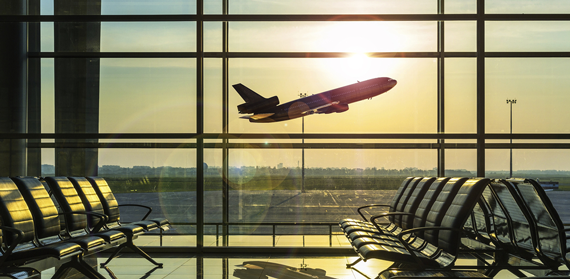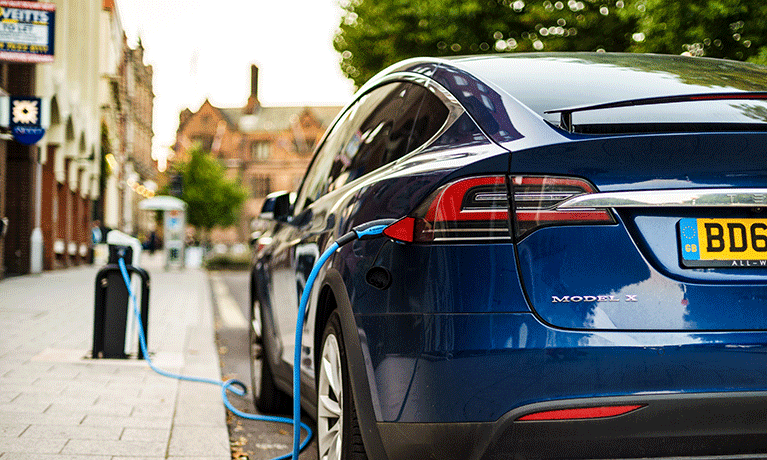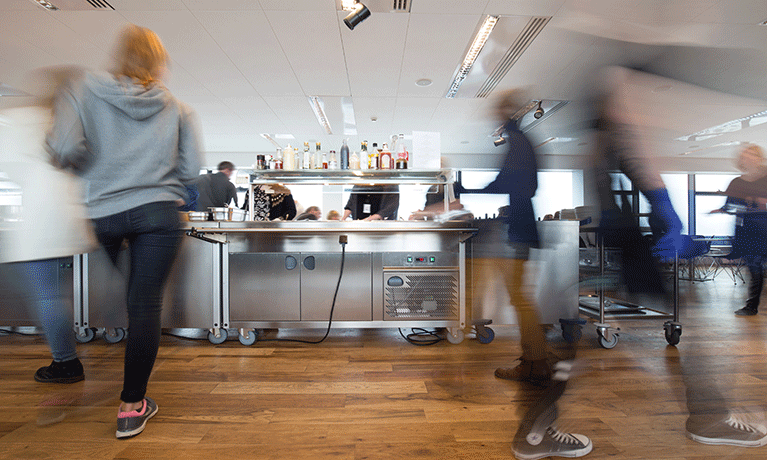Fight or flight/Shutterstock
Guest post by Dr Solon Magrizos, Centre for Business in Society
Have you ever had your suitcase go missing after a layover flight? Only to have it unapologetically sent to you half damaged, a couple days later? My guess is that if you have, you were extremely annoyed at the company, vowed to ‘never fly X again’, perhaps felt inclined to write an angry letter to the firm, even a Facebook post to tell your friends! But other than that, as you probably discovered, there is not much that can be done.
Unless one is a creative musician that is.
Dave Carroll flew on a United Airlines flight back in 2008, and found upon arrival his expensive guitar broken. He accused the United employees of complete indifference and rudeness, and after nine months of negotiations about a compensation, he gave up. But instead of writing a Facebook post he did what he knew best: He wrote a song, entitled “United Breaks Guitars” and posted the video clip online. The video, an instant hit, amassed millions of views and prompted United to finally pay the $3,000 compensation which Carroll donated to the Thelonious Monk Institute of Jazz (!), having by then realized he could make a career out of this incident. More importantly though, it was widely reported that the video prompted a 10% decrease in the company’s stock price costing stockholders $180million. Dave Carroll now earns his living as an author and speaker on the lessons learned from the ‘power of one’s voice, in the age of social media’. A lesson that unfortunately United Airlines appear to have not learnt as the last two weeks have shown, despite their ability to launch musical careers.
First, it was LeggingsGate, on March 26th, when a United Airlines agent stopped two girls from flying because they were wearing leggings. The company tweeted a couple hours later what they must have thought was an explanation to set matters straight: “The passengers this morning were United pass riders who were not in compliance with our dress code policy for company benefit travel”. A dress code policy from which the company retreated, after it was caught in a social media storm between Hollywood stars’ angry responses and twitter users’ mockery. The more recent second incident was on April 10th, where you probably saw the horrific video footage of a passenger being forcibly removed by law enforcement agents from the plane.
United Airlines incident: So why do airlines overbook?
(Video courtesy: Jayse Anspach) https://t.co/Kl3ETO4dXX pic.twitter.com/HJaWM0pFeQ— BBC North America (@BBCNorthAmerica) April 11, 2017
The company’s untimely response to their overbooked flight followed by, to the dismay of on looking passengers, violently dragging away a passenger has sparked an online outrage. But this time, the CEO apologized. Well, kind of: “I apologize for having to re-accommodate these customers. Our team is moving with a sense of urgency to work with authorities and conduct our own detailed review of what happened”. So it appears he is not sorry for the physical and emotional pain they caused to a doctor trying to go to work. Nor was there at the very least an acknowledgement for the stress caused to the rest of the passengers for having to see a fellow passenger being carried out by force while shouting ‘I have to go home’. But, he is however, sorry for having overbooked the flight. He issued a second apology on 11th April stating: ‘’I want you to know that we take full responsibility and we will work to make it right”, after apologising to the passenger who was forcibly removed and also to the other customers on board. But had the damage already been done? Some seemed to think so.
@united Dear Oscar. Your ‘apology’ is textbook. Heartless. Corporate BS. But the beating your share price is getting, that hurts doesn’t it?
— HESH (@HeshdeSilva) April 11, 2017
Apologies from the CEO matter. They strengthen the organisation by internally encouraging a culture of owning up to mistakes and externally promoting commitment to stakeholders. They are a sign of good leadership and wise crisis management. But, not all apologies are the same. More and more consumers grow sceptical to the growing number of what they perceive to be unenthusiastic, even hypocritical apologies. After one of BP’s oil rigs exploded resulting in the death of 11 of its employees and a huge environmental crisis, it took its CEO many days before apologising, which as it appears, I can only regard as half-hearted at best: “I am sorry… no one wants this over more than me. I want my life back”. And when Abercrombie and Fitch faced a backlash when its CEO’s quote was seen as promoting exclusivity and bullying, his response was to apologise not for saying what he said, but because his words were interpreted wrongly (by everyone else!). In order for a company’s apology to be effective, a few factors have been found to affect the public’s scepticism: timeliness of response, ownership of mistakes, assuming responsibility, recognising regret, showing humility, asking for forgiveness and educating for future change.
The story of United’s repeated fiascos is one of many that strengthens the important argument for an ethical approach in doing business; a consistent outcome of many different research projects here in CBiS. Swartz et al identified 6 values as an important prerequisite for ethical crisis management: Trustworthiness, Responsibility, Caring, Respect, Citizenship and Fairness. Companies should strive to create a culture incorporating ethical values and will find that many future crises can be avoided as a direct result of doing so. Or, they can examine whether United showcased any of these values in the above scenarios. One can vividly imagine the smile on the face of Dave Carroll – the creative musician- when he tweeted on the 11th of April, only a few hours after United’s last “apology” to the passenger who was removed by force: “When caring & compassion aren’t cornerstone values of your business, your brand is a sitting duck”.
Tell us in the comments below. What makes a company’s apology sincere in your eyes?




Comments are disabled